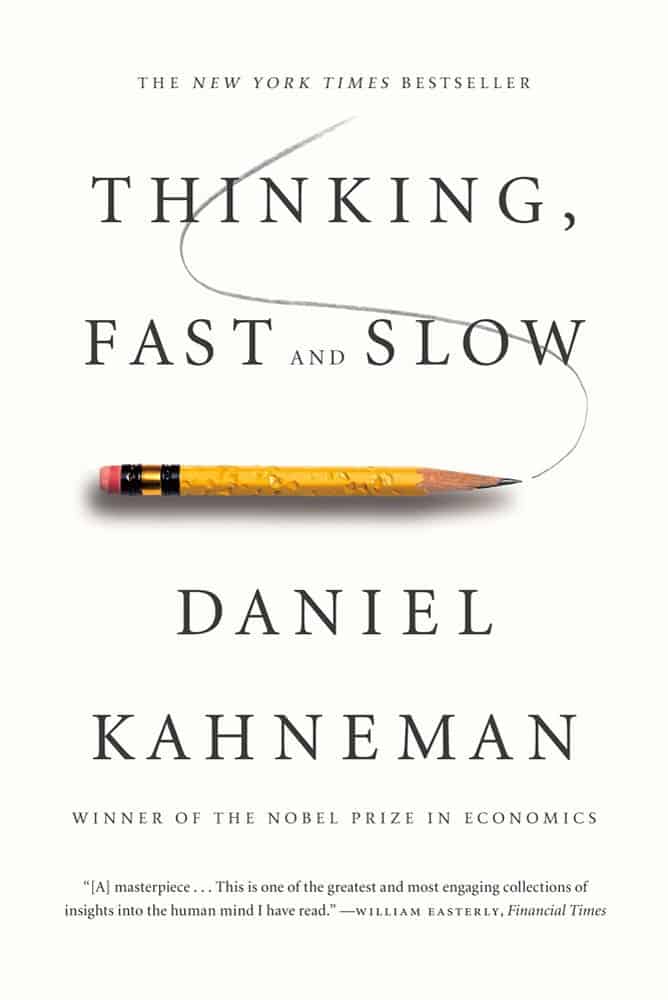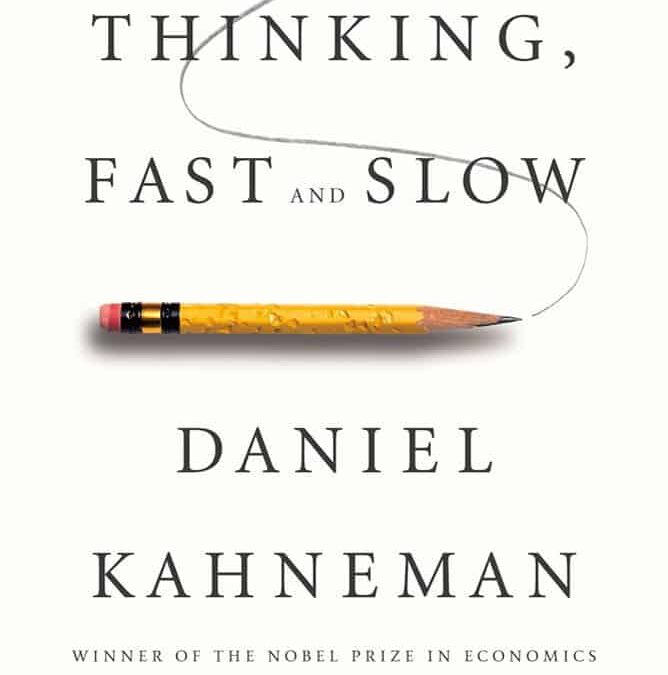
Pg 63
- How to write a persuasive message
- anything you can do to reduce cognitive strain is good
- i.e. use high quality paper (if printed) to maximize contrast between characters, if in color you’re more likely to be believed if you use bright blue or red text vs. middling shades of green, yellow, or blue
- do not use complex language where simple language will suffice
- rhyming is good (but dont overdo it)
- if you are quoting someone, choose someone with an easily pronounceable name
- anything you can do to reduce cognitive strain is good
Pg 81
- We are especially vulnerable when our system two is engaged (critical thinking, math problems, etc) and are more likely to believe something that is false when our system two is occupied
Pg 85
- before an issue is discussed in a meeting, everyone should be asked to write a very brief summary of their opinion on the issue at hand. the standard practice of open discussion gives too much weight to the opinions of those who speak early and assertively, causing others to line up behind them
Pg 125
- Anchoring is EXTREMELY important. Whatever is the first number someone hears as a quote is going to dramatically affect their opinion of future numbers (even if the first number is totally unrelated to the context of the second)
- How can you expose someone to a large number initially without them knowing it?
A media story catches the attention of a segment of the public who become aroused and worried. This emotional reaction becomes a story in itself, prompting additional coverage in the media, which in turn produces greater concern and involvement. This cycle is often sped along by “availability entrepreneurs”, individuals or companies who work to ensure a continuous flow of worrying news. The danger is increasingly exaggerated as the media compete for attention grabbing headlines. Scientists and others who try to dampen the increasing fear and revulsion attack little attention, most of it hostile and labeling them as guilty of a “heinous cover up”. The issue becomes politically important because its on everyones mind, and thus policy follows (immigration, abortion, planned parenthood, etc)
Pg 164
- The social norm against stereotyping, including the opposition to profiling, has been highly useful in creating a more civilized and more equal society. It is useful to remember, however, that neglecting valid stereotypes inevitably results in suboptimal judgements. Resistance to stereotyping is a laudable moral position, but the simplistic idea that the resistance is costless is wrong. The costs are worth paying to achieve a better society, but denying that the costs exist, while satisfying the soul and politically correct, is not scientifically defensible. Reliance on the affect heuristic is common in politically charged arguments. The positions we favor have no cost and those we oppose have no benefits.
Pg 184
- “she says experience has taught her that criticism is more effective than praise. what she doesn’t understand is that its all due to regression to the mean”
Pg 202
- When an unpredicted event occurs, we immediately adjust our view of the world to accommodate the surprise.
- Once you adopt a new view of the world (or any part of it), you immediately lose much of your ability to recall what you used to believe before your mind changed.
Pg 216
- Investing with a private investor is basically a sham and the only people that beat the market do so based on luck, not skill (proved in this chapter). Year to year correlation was zero between returns and investor that picked the stocks. the firm rewarded luck as if it were skill…. their own experience of exercising careful judgement on complex problems was far more compelling to them than an obscure statistical fact (they would make more money flipping coins than they would doing their actual jobs)
Pg 219
- Asked a panel of 280 experts on their opinions on the likelihoods of future events in the fields (ex. gorbatrav being overthrown for an expert in russian politics)…
- results were devastating. they wouldve been better throwing darts than relying on their real world experience.
- those who know more forecast slightly better than those who know less. But those with the most knowledge are often less reliable. The reason is that the person who acquires more knowledge develops an enhanced illusion of their skill and becomes unrealistically overconfident.
Pg 223
- oftentimes simplified equations are more accurate than complex human reasoning
- EX: counselors were asked to predict the grades of freshman after their first year of college. They could interview the student for 45 mins, see their high school grades, aptitude tests, and a four page personal statement
- The counselors competed against a statistical algorithm that only had access to high school grades and one aptitude test and weighted them equally. the algorithm beat 11 of the 14 counselors.
- In general, algorithms are simnifically better than intuition 60% of the time. The rest is a wash.
Pg 232
- How to use algorithmic simplification in the interview process
- select a few traits that are prerequisites for success in this position (technical proficiency, engaging personality, reliability, and so on). Six dimensions is a good number
- These traits should be independent from each other, and you should be able to evaluate them well based on asking a few factual questions
- Make a list of questions for each trait and figure out how you would score them on a 1-5 scale (have an idea of what you call very weak or very strong)
- collect the information one trait at a time. add up the 6 scores. resolve to hire the candidate who scores the highest regardless of other factors.
Pg 248
- We always overestimate the likelihood of our own success and disregard anything that is an “unknown unknown”… something that we couldn’t have anticipated that will likely be the reason for the failure of our startup, business, etc
- people who have the specifics of an individual case rarely feel the need to know the statistics of the class to which that case belongs (new restaurants, app startups, etc)
Pg 252
- When forecasting the outcome of risky projects, executives too easily fall victim to the planning fallacy. In its grip, they make decisions based on delusional optimism rather than on the rational weighting of gains, losses, and probabilities. They overestimate benefits and underestimate costs. They spin scenarios of success while overlooking the potential for mistakes and miscalculations.
Pg 262
- CEO were asked to forecast market returns for the next year within an 80% confidence interval. (EX 80% likely that the returns will be between -5% and 10%
- They were totally wrong, and the range that would’ve actually had 80% confidence was -10% and +30%, much to wide to be viewed as “expertise advice” and they would be laughed out of any board room
Pg 264
- Ways to curb optimism about future project – premortem
- When the org has almost come to an important decision but has not fully committed itself, Klein proposes gathering for a brief session with a group of people who are knowledgeable about the decision. Then he says “imagine we are a year into the future. We implemented the plan as it now exists. The outcome was a disaster. Please take 5 to 10 minutes to write a brief history of that disaster” (this legitimizes doubts instead of casting out nonbelievers as unloyalw or uncommitted)
Pg 305
- Initially conceived plans for reform (simplifying the tax code, reducing medical costs, etc) almost always produce many winners and some losers while achieving an overall improvement. If the affected parties have any political influence, however, potential losers will be more active and determined than potential winners (loses loom larger than gains); the outcome will be biased in their favor and inevitable more expensive and less effective than initially planned. Reforms commonly include grandfather clauses to protect current stakeholders (EX: when cuts in salary only apply to future workers)
THE MOST IMPORTANT TAKEAWAY – NOT SURE WHAT PAGE
If you are offered a bet where if you get heads you win $100 and if you get tails you lose $50, you will likely reject the bet as people are loss averse. However, if you are offered the same bet 50X, you would be an idiot to refuse it, as the odds of you winning are incredibly high
*** life is collection of decisions like these, but many people refuse to accept the bet as they are concerned with the short term losses instead of the overall picture. Don’t let minor short term losses cloud you judgement on long term gains***


Recent Comments